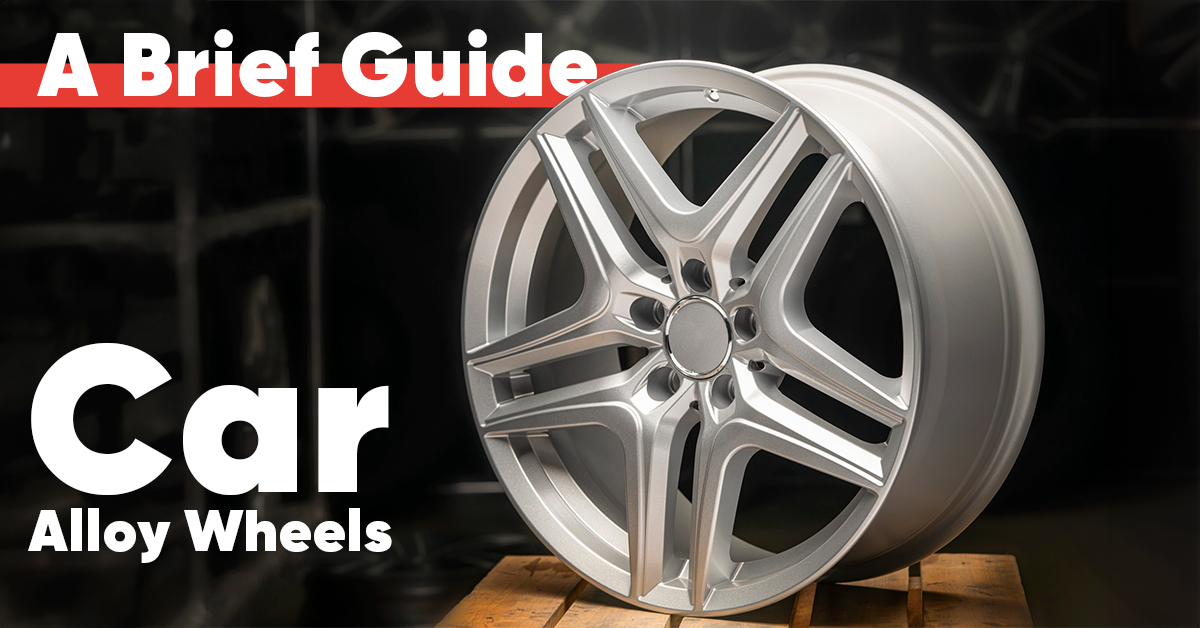Humanity has come a long way since the invention of the wheel. This tool has seen a lot of innovation and materials from the wooden rolling log to the modern steel wheel. The current material trend is car alloy wheels. Once a luxury, alloy wheels are now one of the most popular modifications. These wheels offer several advantages over common steel wheels.
This 2024 guide shall get you everything about alloy wheels, from their types and benefits to maintenance tips for prolonged wheel life.
What Are Alloy Wheels?
An alloy is a mixture of two or more metals or a metal and non-metal.
Alloy wheels are made from an alloy of light metals. These wheels are usually made from alloys of two metals:
- Aluminium
- Magnesium.
Lightweight alloys are used, to obtain lighter and stronger wheels with both performance and aesthetics.
Types of Alloy Wheels
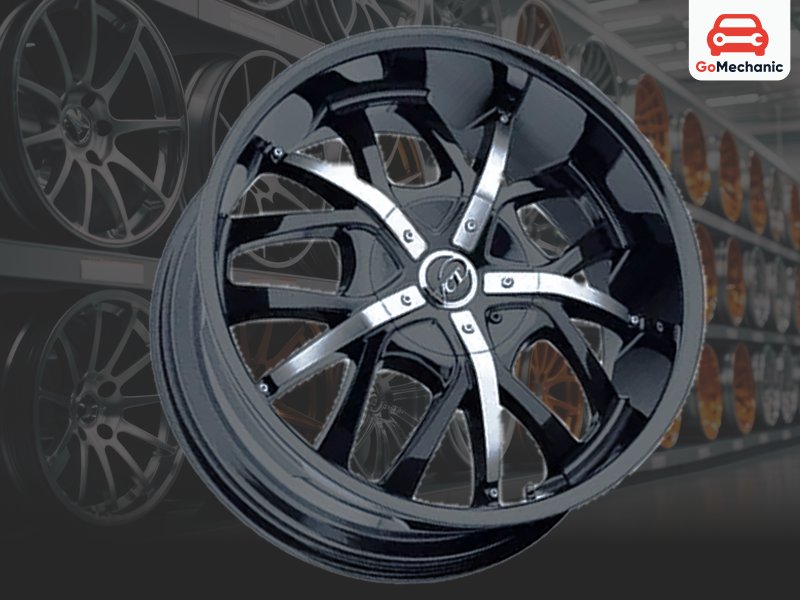
4 major types of alloy wheel options available in the current Indian market are:
- Cast Alloy Wheels: Cast alloy wheel making involves pouring molten alloy into a mould(cast). These are less expensive and a popular choice among car owners.
- Forged Alloy Wheels: These are manufactured using high pressure to shape the alloy. Forged Alloy Wheels are stronger and lighter but have a higher price tag.
- Billet Alloy Wheels: Milled from a single alloy piece, these wheels are customised for high performance and unique designs.
- Multi-piece Alloy Wheels: Comprising two or three pieces bolted together, these wheels allow for greater customisation in terms of width and offset.
Benefits of Car Alloy Wheels

Carry alloy wheels carry several benefits:
- Enhanced Performance: Alloy wheels reduce the overall car weight. This results in better acceleration and braking, for high-performance vehicles.
- Better Fuel Efficiency: Car alloy wheels reduce engine workload, improving fuel efficiency. Reduced fuel costs factor in long-term savings.
- Better Appeal: Alloy wheels come in various sizes and finishes, giving your car a modern custom appearance.
- Better Heat Dissipation: Better heat dissipation improves the durability of brakes.
- Rust Resistance: Aluminum alloy resists corrosion, making it more suitable for harsh weather conditions.
Alloy Wheel vs Steel Wheel
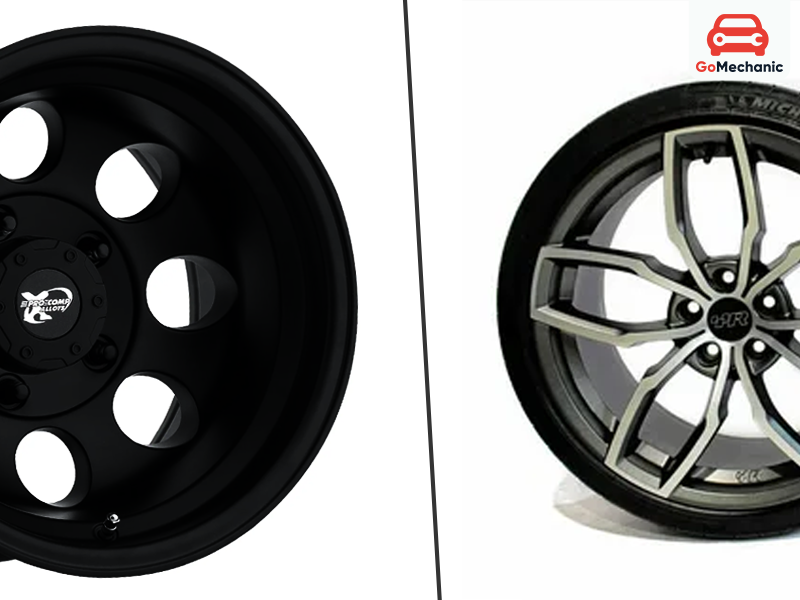
Here’s a comparison between the conventional Steel Wheel and Alloy Wheels:
| Feature | Alloy Wheels | Steel Wheels |
| Material | Aluminium, nickel or magnesium alloy (light metal alloy) | Steel (Alloy of iron and carbon) |
| Weight | Lighter | Heavier |
| Efficiency | Improves fuel efficiency | Lowers fuel efficiency |
| Performance | Better acceleration and braking | Average performance |
| Aesthetics | Sleek, stylish, custom designs | Basic, plain, limited options |
| Durability | Prone to crack under impact | damage and bend resistant |
| Heat Dissipation | Better heat dissipation | Poorer heat dissipation |
| Braking | Prolongs brake life | Adds to brake wear |
| Cost/Price | Higher price tag | Lower/affordable price tag |
| Rusting | Rust and corrosion resistant | Prone to rust |
| Maintenance | Requires higher handling and care | Easier to maintain and repair |
| Suitability | performance and aesthetics | rugged use (off-roading) |
What to Consider Before Buying Alloy Wheels
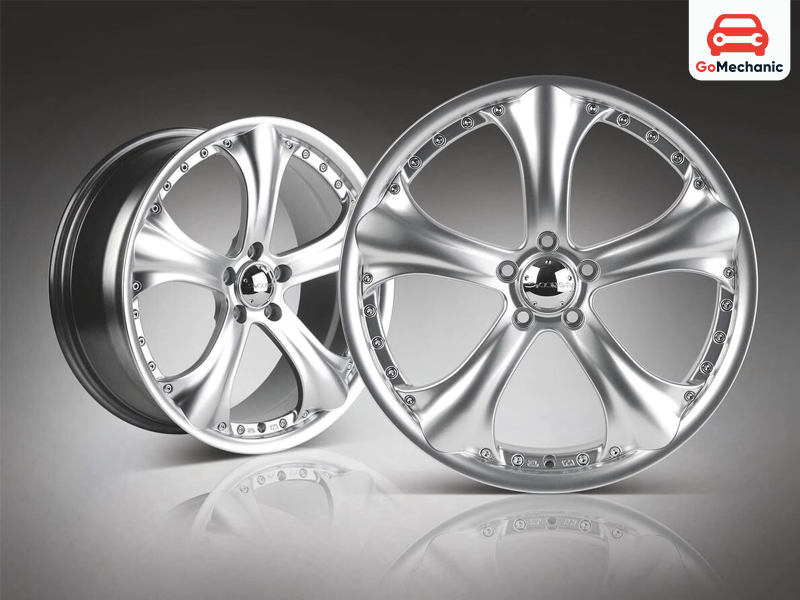
Before upgrading to car alloy wheels, consider these factors:
- Alloy Wheel Size: Wheel size affects both the look and performance of your vehicle. Larger wheels provide a sportier appearance but also affect ride comfort. The wheel size should not exceed the parameters set by the vehicle manufacturer.
- Alloy Wheel Type: Different types of alloy wheels offer different levels of performance and utility. The best alloy wheel for a car depends on specific needs.
- Wheel Durability: While alloy wheels are lighter, they are also more damage prone than steel wheels. They are more susceptible to cracking upon impact.
Tips to Extend the Use of Alloy Wheels
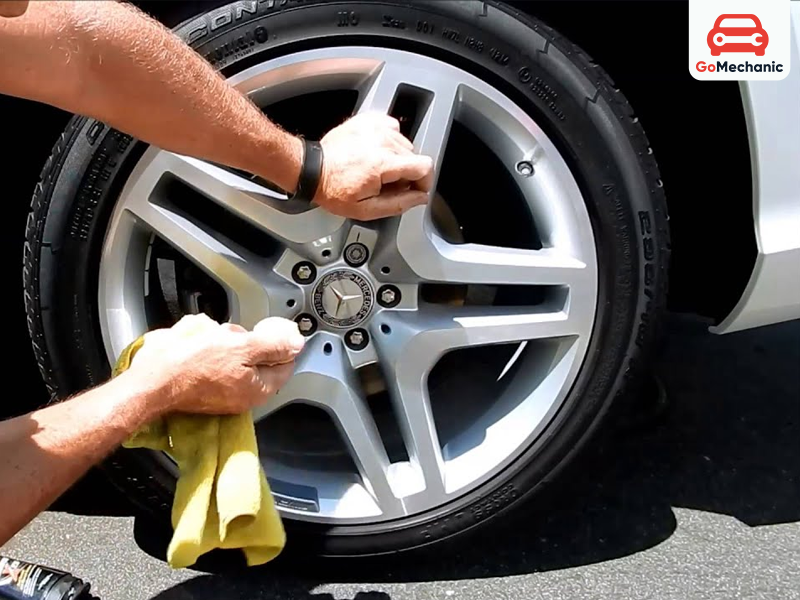
- Cleaning: Regular cleaning can reduce your alloy wheels’ corrosion. Use a mixture of mild soap and water.
- Vehicle Inspections: Regular maintenance and immediate repair will keep your alloy wheels going longer.
- Avoid curb ends and Jerks: Avoid contact between the car and curb ends as the driving angle results in structural damage.
Latest Car Alloy Wheel Trends in 2024
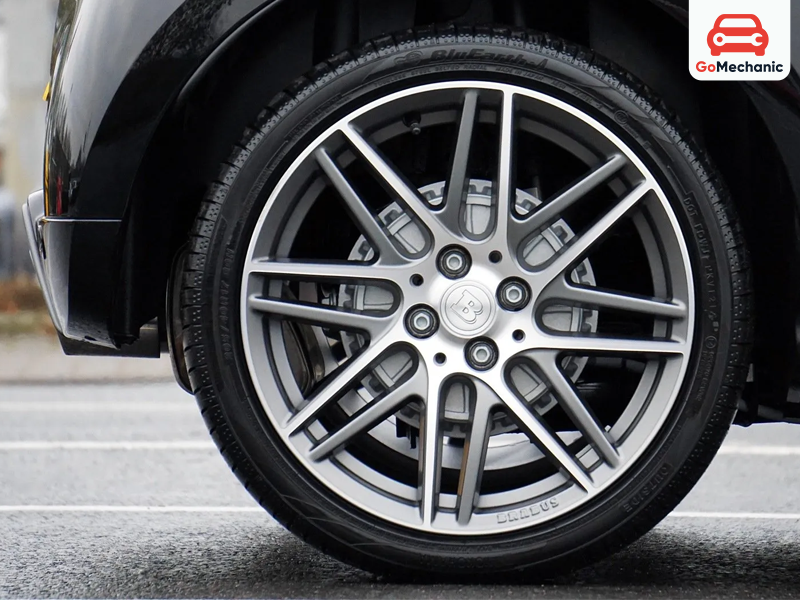
In 2024, popular car manufacturers are offering alloy wheels even in the budget segment cars like Maruti Swift or Tata Tiago(upper trims).
Existent car owners are switching from stock car wheel covers and steel wheels to premium alloy wheels.
Aftermarket brands in India offer a range of sizes, such as 15-inch and 17-inch, fitting everything from compact hatchbacks to larger SUVs.
Alloy wheels India provides plenty of options, depending on the brand, size, and finish. With the rise in demand for car customization, alloy wheel prices have turned competitive:
- 15 inch Alloy wheels: ₹ 25,000 to ₹ 50,000, depending on brand and design.
- 17 inch Car alloy wheels: Range from ₹ 40,000 to ₹ 1 lakh, depending on the finish and material.
Does Car Insurance Offer Coverage for Alloy Wheels?
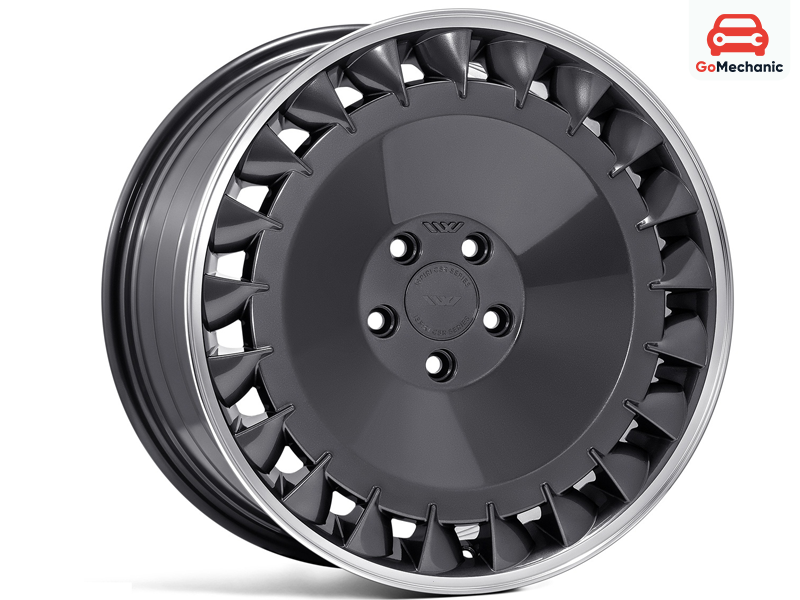
Yes, but only with a wheel protection add-on. A basic comprehensive plan will not cover wheel repair/replacement unless the complete car is damaged. A tyre protection add-on can offer coverage for your alloy wheels.
In some cases, alloy car wheels fall under the accessory category, hence confirm with your agent before finalising the insurance.
Alloy Wheels: Past’s Luxury, Present’s Necessity
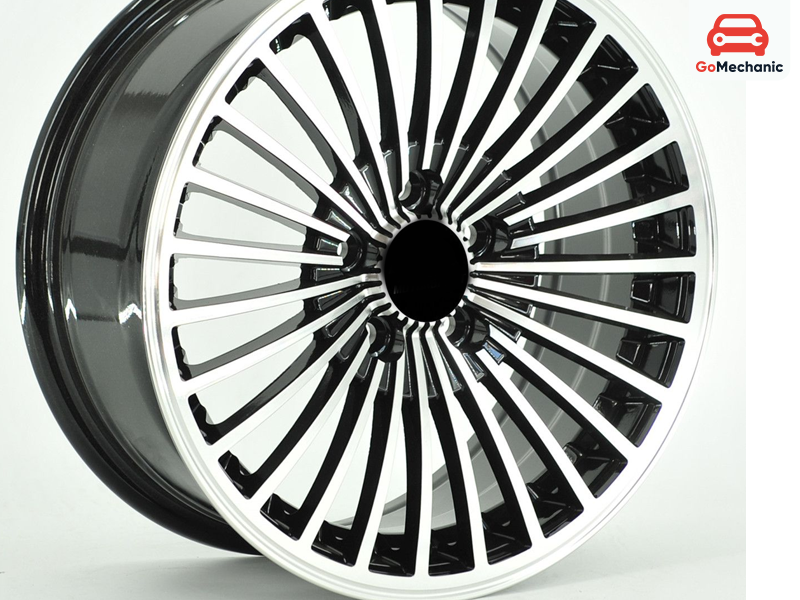
Alloy wheels are no longer exclusive to luxury cars. Now, they essentially improve your car’s performance and fuel efficiency without tearing your pocket apart. Investing in quality alloy wheels offers enough benefits to make them a smart choice. Elevate your driving experience through an informed choice, explore the world of car alloy wheels and find the perfect match for your vehicle!
